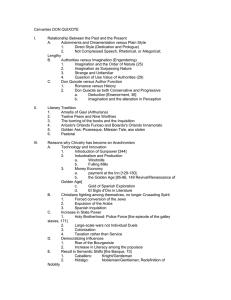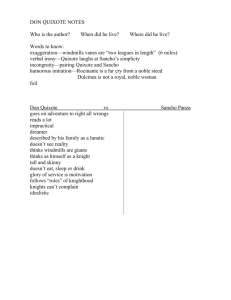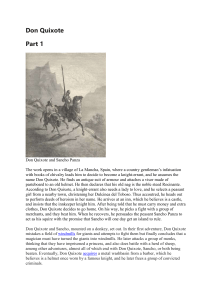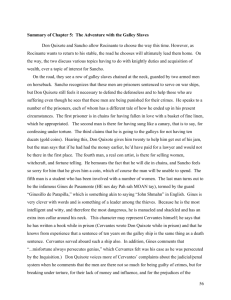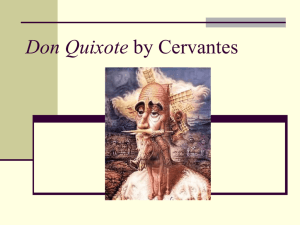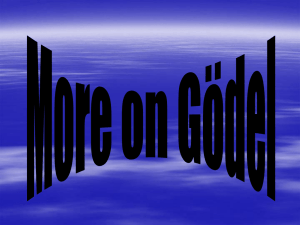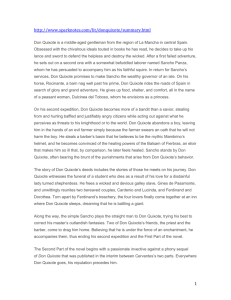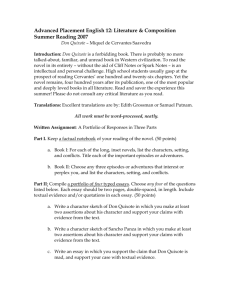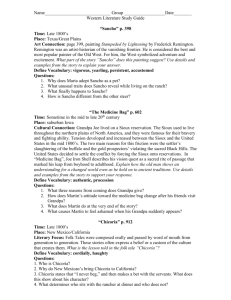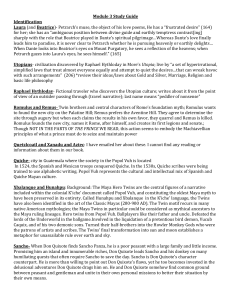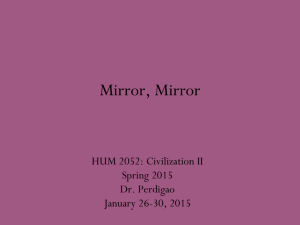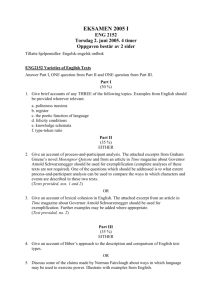CERVANTES Don Quixote ….. Sancho bade him remember it was
advertisement
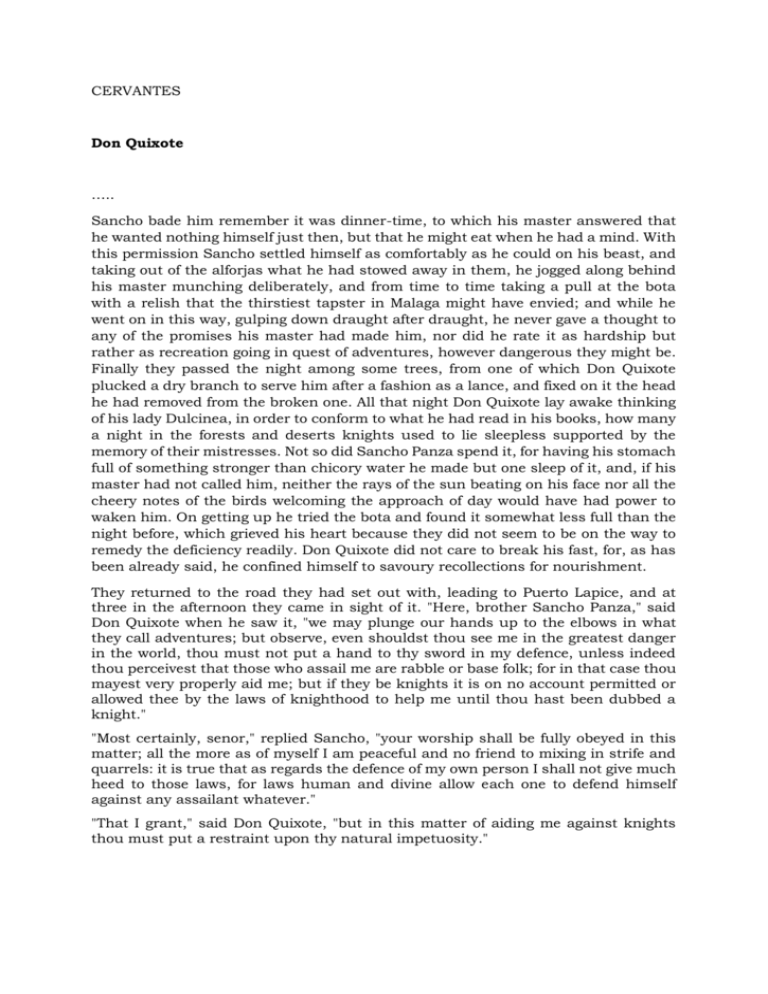
CERVANTES Don Quixote ….. Sancho bade him remember it was dinner-time, to which his master answered that he wanted nothing himself just then, but that he might eat when he had a mind. With this permission Sancho settled himself as comfortably as he could on his beast, and taking out of the alforjas what he had stowed away in them, he jogged along behind his master munching deliberately, and from time to time taking a pull at the bota with a relish that the thirstiest tapster in Malaga might have envied; and while he went on in this way, gulping down draught after draught, he never gave a thought to any of the promises his master had made him, nor did he rate it as hardship but rather as recreation going in quest of adventures, however dangerous they might be. Finally they passed the night among some trees, from one of which Don Quixote plucked a dry branch to serve him after a fashion as a lance, and fixed on it the head he had removed from the broken one. All that night Don Quixote lay awake thinking of his lady Dulcinea, in order to conform to what he had read in his books, how many a night in the forests and deserts knights used to lie sleepless supported by the memory of their mistresses. Not so did Sancho Panza spend it, for having his stomach full of something stronger than chicory water he made but one sleep of it, and, if his master had not called him, neither the rays of the sun beating on his face nor all the cheery notes of the birds welcoming the approach of day would have had power to waken him. On getting up he tried the bota and found it somewhat less full than the night before, which grieved his heart because they did not seem to be on the way to remedy the deficiency readily. Don Quixote did not care to break his fast, for, as has been already said, he confined himself to savoury recollections for nourishment. They returned to the road they had set out with, leading to Puerto Lapice, and at three in the afternoon they came in sight of it. "Here, brother Sancho Panza," said Don Quixote when he saw it, "we may plunge our hands up to the elbows in what they call adventures; but observe, even shouldst thou see me in the greatest danger in the world, thou must not put a hand to thy sword in my defence, unless indeed thou perceivest that those who assail me are rabble or base folk; for in that case thou mayest very properly aid me; but if they be knights it is on no account permitted or allowed thee by the laws of knighthood to help me until thou hast been dubbed a knight." "Most certainly, senor," replied Sancho, "your worship shall be fully obeyed in this matter; all the more as of myself I am peaceful and no friend to mixing in strife and quarrels: it is true that as regards the defence of my own person I shall not give much heed to those laws, for laws human and divine allow each one to defend himself against any assailant whatever." "That I grant," said Don Quixote, "but in this matter of aiding me against knights thou must put a restraint upon thy natural impetuosity." "I will do so, I promise you," answered Sancho, "and will keep this precept as carefully as Sunday." While they were thus talking there appeared on the road two friars of the order of St. Benedict, mounted on two dromedaries, for not less tall were the two mules they rode on. They wore travelling spectacles and carried sunshades; and behind them came a coach attended by four or five persons on horseback and two muleteers on foot. In the coach there was, as afterwards appeared, a Biscay lady on her way to Seville, where her husband was about to take passage for the Indies with an appointment of high honour. The friars, though going the same road, were not in her company; but the moment Don Quixote perceived them he said to his squire, "Either I am mistaken, or this is going to be the most famous adventure that has ever been seen, for those black bodies we see there must be, and doubtless are, magicians who are carrying off some stolen princess in that coach, and with all my might I must undo this wrong." …..
